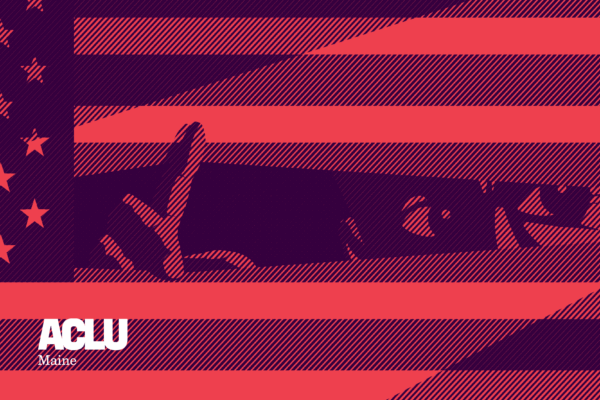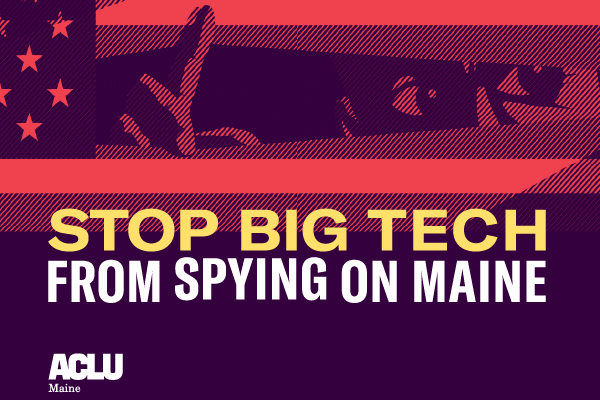Twenty-five years ago, I co-founded a technology and digital marketing company named LiquidHub in the midst of the dot com bubble. I have been a teacher, a tech entrepreneur, a business owner, and a community builder. I am now the ACLU of Maine’s interim executive director and board president. I am passionate about using technology to improve our lives, and I am equally passionate about protecting the civil liberties that let us live freely. Technology and privacy can coexist, and if our democracy is to survive, they must.
The ACLU fights to extend the Constitution’s promises to all people: dismantling systems of oppression, preserving bodily autonomy, ensuring the right to vote, protecting free speech, and more. The Constitution’s core promises and our collective project of building a more perfect union are threatened by Big Tech’s mass surveillance.
My company’s business plan did not depend on invading customers' privacy. Instead, we built honest relationships with our clients, creating opportunities for our employees and improving our clients’ business performance. We employed thousands of people and worked with some of the industry’s key players, making me deeply aware both of technology’s promises and its threats.
There is a saying in technology circles: “If you think there’s such a thing as a free lunch, then you are the lunch.” If information about you can be collected, Big Tech will collect it.
The technology in your pocket and your home offers these technology giants unprecedented access to your private life. They track your every move across different websites, devices, apps, and locations. A seemingly benign exercise app can track you leaving your house and attending a political event. Big Tech can, and does, sell that information to advertisers who market candidates and products they think you may like. Additionally, the government could purchase this data or obtain it with a warrant, threatening various constitutional rights. No company needs to collect and sell personal information to help you get from point A to point B.
This corporate surveillance is a threat to civil rights, our democracy, and our safety. First, big businesses are increasingly feeding our data to algorithms that make decisions about hiring, offering loans, screening tenants, and accepting students. This is digital redlining, opaque discrimination buried in code.
Second, companies use our personal information to try to manipulate us into voting certain ways, not voting, or joining movements to undermine democracy itself.
Third, the more Big Tech collects about us, the more exposed we are in data breaches. Instead of losing a credit card number, hackers could learn the fine details about our lives. They could even access biometric data, such as the finger or palm print companies increasingly push customers to use to pay for groceries – your most sensitive, irreplaceable information.
For example, the ACLU sued ClearView AI after it collected and sold millions of internet users’ information that buyers then used to stalk former partners. The simple act of using the internet should never expose people to violence.
LD 1977, a bill currently before the state legislature, creates sensible guardrails to protect Maine’s people from these abuses. Tech giants, who are the worst data privacy invaders, would be allowed to collect only the information necessary to provide a good or service to a customer. The bill also contains strong anti-discrimination provisions to protect marginalized communities. In contrast, a competing bill, LD 1973, backed by Big Tech, would largely maintain the status quo under a thin veneer of protecting privacy.
Privacy is not about secrecy. It’s about agency, deciding what we share and when we share our information. I know the tech world and I know how to run a responsible, ethical technology business. Trust me when I say no company needs to collect and exploit your most sensitive information to prosper.
This piece was also published in the Bangor Daily News on April 1, 2024.




